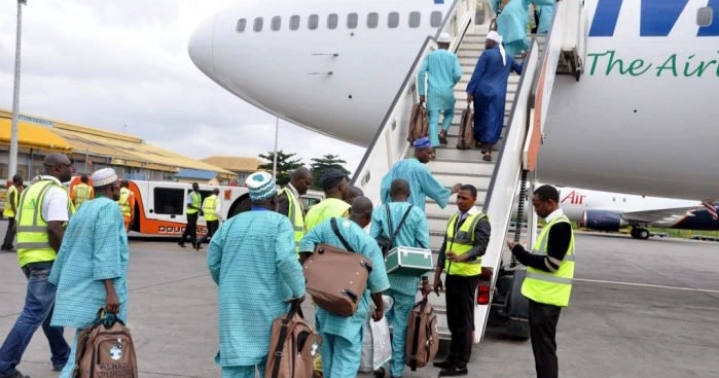General
Nigerian Pilgrim Gives Birth In Makkah

One of the Nigerian women (name withheld) who came to Saudi Arabia to perform this year’s Hajj rituals has given birth in Makkah.
The pilgrim, who was seven months pregnant, was admitted at one of the National Hajj Commission of Nigeria (NAHCON)’s clinics in Makkah where she was assisted by the Nigeria medical team to deliver the baby.
The head of NAHCON’s medical team, Dr Usman Galadima, revealed this yesterday in Makkah while chatting with some members of the national media team covering the ongoing 2023 Hajj operations.
Dr Galadima said pregnant pilgrims ignored the advice that pregnant women should not come for Hajj. “In Makkah we have established three clinics and we planned to have up to seven clinics as more pilgrims come in.”
“We see different cases rising from malaria, cough, sore throat and so on. We were also managing chronic illness like diabetics and others. Many of the pilgrims do not come with their drugs despite our efforts to let them know that they can come with their medications. But I understand that these medications were confiscated from them at the Nigerian border and this is wrong because a traveler should be able to travel with his medication if it is a prescription medication.
“We also have cases of women with advanced pregnancy, one of them was about seven months pregnant, she had to be admitted and delivered of the baby. We had to take the others to the Women Hospital in Makkah for admission for urgent care. “So, despite our cautionary calls against pregnant women coming into the Kingdom and this is because with the high physical exhaustion, the tendency to have complications associated with pregnancy increases and it is advised that pregnant women should not come for Hajj, but we see so many cases of pregnant women coming for this Hajj,” Dr Galadima said.
According to Galadima, no fewer than 300 patients report to NAHCON clinics on a daily basis for different cases. “Now with the clinic in Masala, we are seeing up to 300 patients per day. We have been trying to educate our patients on cautionary measures to take while in Makkah. For instance, the temperature rises up to 47°C per day in Makkah and pilgrims’ accommodation is between 3 to 4km from Haram, and find a situation where pilgrims make it mandatory to go to Haram to observe prayer five times per day.
So they walk an average of 7 to 8 km in a day. That is quite physically exhausting and it increases mobility especially among the elderly












